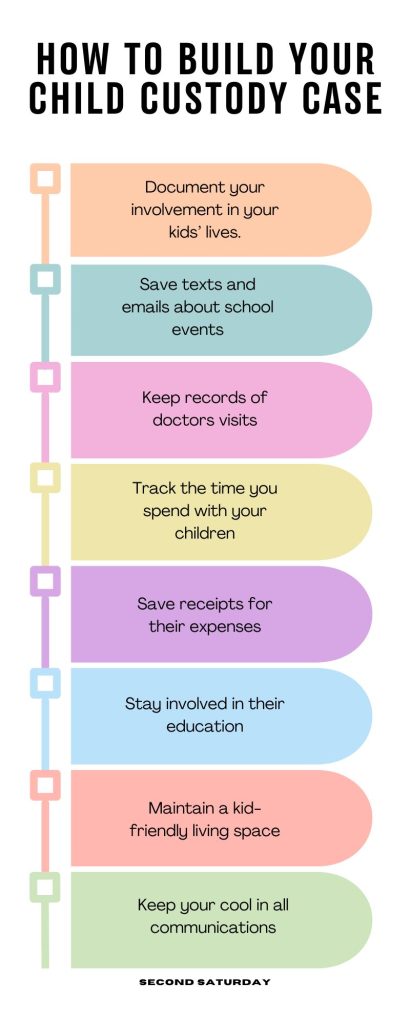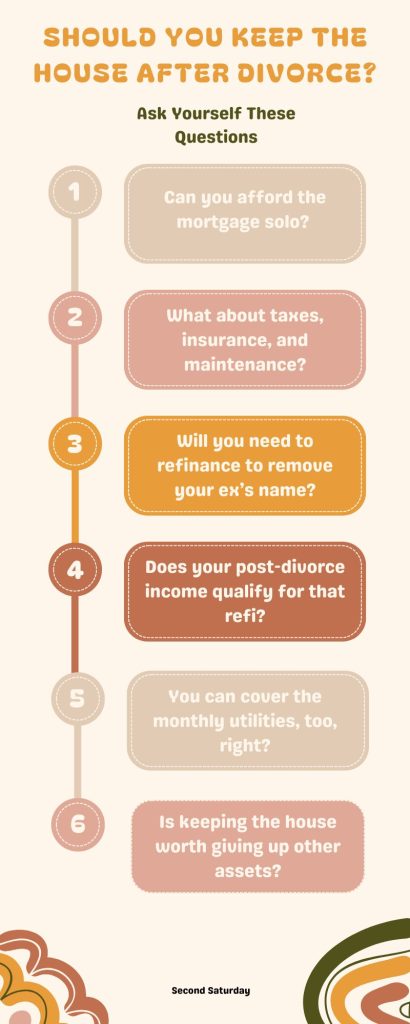Men and Divorce: What Men Need to Know About the Divorce Process

If you’re a man facing divorce, you might feel like the deck is stacked against you. Maybe you’ve heard stories about guys losing everything in divorce court, or you’re worried about maintaining a relationship with your kids. These fears come from outdated ideas about how divorce works. Here’s the good news when it comes to men and divorce. Today’s reality is different.
Modern courts focus on fairness rather than gender, fathers’ rights are protected, and men can even qualify for alimony when circumstances warrant it. Whether you’re just considering divorce or you’re in the middle of proceedings, this guide will walk you through what men need to know about the divorce process.
How Men Can Prepare for Divorce
Let’s face a tough reality: you might not see divorce coming. Research shows women initiate 69% of divorces, leaving many men shocked and scrambling to catch up. Don’t let this be you. If you’re noticing signs that your marriage is in trouble, now’s the time to get your ducks in a row.
First, get your paperwork together. You need:
- Tax returns (last 3-5 years)
- Pay stubs and income docs
- Bank statements
- Credit card statements
- Retirement account info
- Pension details
- Property deeds
- Car titles
- Insurance policies
- List of valuable assets
(Check out our full Second Saturday Divorce Document Checklist)
Now, take action:
- Track every penny you spend
- Open your own bank account
- Document your time with the kids
- Photograph valuable items in your home
- Start a divorce journal – yes, really
- Pull your credit report
- Build your support team
Here’s something many guys get wrong: they try to handle everything solo. Don’t. Tell a trusted friend what’s happening. Talk to a family law attorney – many will give you a free consultation. You’re not being paranoid or plotting against your spouse. You’re being smart and protecting your future.
The best divorce defense? Be prepared.
Understand Your Rights as a Father in Divorce

Let’s destroy an outdated myth right now: courts don’t automatically favor mothers over fathers. Modern family courts focus on one thing – what’s best for your kids. And research consistently shows that children benefit from having both parents actively involved in their lives.
Your rights as a father include:
- Fighting for shared or even full child custody
- Equal decision-making about education, health, and religion
- Regular and meaningful parenting time
- Access to medical and school records
- Active participation in your kids’ activities
Want to strengthen your position? Here’s how:
- Document your involvement in your kids’ lives
- Save texts and emails about school events
- Keep records of doctor visits
- Track the time you spend with your children
- Save receipts for their expenses
- Stay involved in their education
- Maintain a kid-friendly living space
- Keep your cool in all communications
- Never bad-mouth your ex around the kids

Here’s your game plan: focus on being the best dad you can be, not on fighting your ex. Courts look for parents who put their kids first. That means being flexible with schedules when possible, communicating professionally, and showing you’re committed to co-parenting successfully.
Remember this: your gender doesn’t determine your parenting rights – your actions do.
Financial Considerations for Men During Divorce

Let’s talk money – because divorce is as much a financial turning point as an emotional one. According to Pew Research, in 55% of marriages, men are still the primary breadwinners. But here’s what that really means: you’ve likely been the primary retirement saver, pension earner, and possibly the one keeping track of investments. Now, all of these assets are on the negotiating table.
Don’t panic. Knowledge is power, and making smart financial decisions during divorce can make the difference between struggling and thriving in your next chapter.
Men and Alimony
Think only men pay alimony (also known as spousal support)? Think again. That same Pew Research found that, in 16% of marriages today, wives are the primary or sole breadwinners, earning a median of $88,000 compared to their spouse’s $35,000. In these cases, men can and do receive alimony.
When does a man qualify for alimony? Here are common scenarios:
- You stepped back from your career to support your spouse’s education or advancement
- You’re the primary caregiver for your children
- You earn significantly less than your spouse
- You left the workforce to manage the household
- Your earning capacity was impacted by decisions made during marriage
Remember Britney Spears’ ex-husband, Kevin Federline? He received spousal support from the pop star (as well as reportedly $20,000 a month in child support for their two children). While that’s an extreme example, it illustrates an important point: alimony isn’t about gender – it’s about financial equity.
Now, if you’re the higher earner, you might be on the paying end. Don’t let this shake you. Factors that determine whether you’ll pay alimony to your spouse include:
- Length of marriage
- Both parties’ earning capacity
- Standard of living during marriage
- Age and health of both parties
- Contributions to the marriage (including as a homemaker)
- Time needed for job training or education
Pro tip: Whether you’re paying or receiving, negotiate alimony with your head, not your emotions. Consider consulting a financial advisor who specializes in divorce. They can help you understand the tax implications of alimony and structure payments in a way that makes sense for your situation.
Men and Property Division During Divorce
“Keep the house at all costs!” This emotional reaction drives many guys to make their biggest financial mistake in divorce. Let’s think this through strategically.
First, let’s understand marital property: it’s generally any assets either of you acquired during the marriage, regardless of whose name is on them. This typically includes:
- Income earned during the marriage
- Houses, cars, or other property bought during marriage
- Retirement contributions made during marriage
- Investment gains during marriage
- Business growth that happened during marriage
What’s usually not marital property:
- Assets you owned before marriage
- Inheritances received by one spouse
- Gifts given specifically to one spouse
- Property designated as separate in a prenup
Now, about that house. Before you fight for it, ask yourself:
- Can you afford the mortgage solo?
- What about taxes, insurance, and maintenance?
- Will you need to refinance to remove your ex’s name?
- Does your post-divorce income qualify for that refi?
- Is keeping the house worth giving up other assets?

Here’s what many men discover: starting fresh in a new place often makes more financial sense. Why? Because keeping the house can leave you house-rich but cash-poor.
Pro tip: Sometimes, letting your ex keep the house (in exchange for other assets) is your smartest financial play. Focus on what will help you rebuild fastest, not what feels right emotionally right now.
To make smart moves in property division, start by getting professional appraisals of your marital assets. Make sure you understand the difference between separate and marital property, and consider the tax implications of each asset. Look beyond current market values to understand the long-term worth of what you’re getting or giving up. Factor in future maintenance costs and consider how easily you can convert different assets to cash if needed.
Retirement and Pensions for Men During Divorce
Your retirement accounts might be one of your largest assets – and yes, the portion accumulated during marriage is typically subject to division in divorce. This includes your 401(k), pension, IRAs, and other retirement benefits. Many men make the mistake of undervaluing these accounts or trading them away too easily for other assets like the house.
Here’s a crucial detail: while your spouse might be entitled to a portion of your retirement benefits, they’re only entitled to the amount that accumulated during your marriage. Any contributions or growth from before your marriage or after your separation typically remain yours.
When it comes to dividing retirement accounts, you’ll need a special court order called a Qualified Domestic Relations Order (QDRO). This document tells your retirement plan administrator how to divide the benefits. Don’t skip the step of acquiring a QDRO– it’s essential for avoiding heavy tax penalties and ensuring the division is done correctly.
Special considerations for dividing pensions in divorce:
- Consider the present value vs. future payouts
- Understand survivor benefits
- Know your options for buyouts or offsets
- Factor in inflation and cost-of-living adjustments
After divorce, focus on rebuilding your retirement savings. If you’re 50 or older, take advantage of catch-up contributions. Review and adjust your investment strategy based on your new timeline and goals. Consider working with a financial advisor who specializes in post-divorce retirement planning – they can help you create a realistic strategy for securing your future.
Remember: trading away retirement accounts for other assets might feel tempting in the moment, but your future self needs these resources. Make decisions based on long-term financial security, not short-term convenience.
Special Considerations of a Military Divorce

Military divorce comes with its own set of unique challenges and rules. While more women are joining the military (17.3% of active duty service members are women as of 2021), men still make up the majority of service members. If you’re one of them, you need to understand how your military status affects your divorce.
Location matters more than you might think. You can file for divorce in the state where you’re stationed, the state where your spouse resides, or the state where you claim legal residency. Each state has different laws about dividing military pensions and benefits, so choosing where to file can significantly impact your divorce outcome.
The Servicemembers Civil Relief Act (SCRA) provides important protections during divorce proceedings. If you’re on active duty, this law can postpone court actions so you can focus on your military duties. However, don’t ignore divorce proceedings – the SCRA is meant to protect your rights, not delay the inevitable.
Military pensions deserve special attention. Unlike civilian retirement benefits, military pensions can only be divided if you’ve been married for at least 10 years while serving. However, this doesn’t mean shorter marriages leave your spouse without any claim to your benefits – it just changes how they might be handled in the settlement.
Your Basic Allowance for Housing (BAH) might change after divorce, especially if you have children. Work with your command’s legal assistance office to understand how divorce will affect your benefits and allowances. They can’t represent you in divorce court, but they can provide valuable guidance and referrals to civilian attorneys who understand military divorce.
Remember: military service can complicate custody arrangements, but it shouldn’t prevent you from maintaining strong relationships with your children. Create a detailed family care plan that addresses deployments and transfers. Courts appreciate parents who think ahead about their children’s stability.
Fathers and Child Support
Child support isn’t about gender – it’s about providing for your kids. Courts calculate support based on a variety of factors, and yes, if your ex is the higher earner, you might be the one receiving support.
Most states use a specific formula to calculate child support that considers:
- Each parent’s income
- The number of children
- How much time each parent spends with the kids
- Healthcare costs
- Childcare expenses
- Special needs or educational requirements
Don’t fall into the trap of viewing child support as a win or loss. This money isn’t about you or your ex – it’s about maintaining your children’s standard of living in both homes. If you’re paying support, keep detailed records of payments. If you’re receiving support, document how you’re using it for the children’s benefit.
Changing Your Child Support Obligations
Life changes happen. Maybe you lost your job, or your ex got a significant raise. Perhaps your child’s needs have changed. When circumstances shift significantly, you can request a modification of child support. Don’t wait until you’re struggling to take action. As soon as you know your situation is changing, talk to your attorney about modifying support.
Missing Child Support Payments
A word about enforcement: if you’re struggling to make payments, communicate with the court immediately. Avoiding payments can result in serious consequences, including the suspension of your license or even jail time. On the flip side, if you’re not receiving court-ordered support, don’t take matters into your own hands by withholding visitation – that could backfire legally. Instead, work through proper legal channels for enforcement.
Remember: Children thrive when both parents work together to provide for their needs. Keep the focus on your kids’ well-being, not on tensions with your ex.
Why Men Should Consider Divorce Mediation and Collaborative Divorce

Let’s talk divorce strategy. Many guys were raised to believe that backing down from a fight means weakness. But when it comes to divorce, charging into court isn’t strength – it’s often a fast track to financial disaster.
Think about the numbers: A typical litigated divorce can cost you $15,000 to $30,000. That’s money coming out of your future. Money you could spend on a down payment for a new home, your kids’ education, or rebuilding your life. Mediation, on the other hand, can cost between a few thousand dollars up to $9,000.
But this isn’t just about money. Fighting it out in court means airing your private life in public records. It means dragging out the process for months or even years. It means giving control of major life decisions to a judge who doesn’t know you or your situation. And if you have kids, it means potentially damaging co-parenting relationships forever.
Mediation and collaborative divorce offer a smarter approach.
Divorce Mediation
Divorce mediation is a process where you and your ex work with a neutral third party (the mediator) to reach agreements about everything from property division to custody. The mediator doesn’t make decisions for you – they guide discussions and help you find a middle ground. You can still have your own attorney review agreements before signing. Think of it like negotiating a business deal with someone helping you find win-win solutions.
Collaborative Divorce
Collaborative divorce takes a team approach. Both you and your ex have attorneys, but everyone signs an agreement to settle out of court. You can bring in neutral experts like financial advisors or child specialists when needed. It’s like assembling your own divorce dream team, with everyone focused on reaching a fair settlement instead of preparing for war.
Don’t mistake choosing mediation or a collaborative divorce for being a pushover. Some of the toughest negotiators in business use mediation because it works. It gives you more control over the outcome, costs less, moves faster, and keeps private matters private. That’s not weakness – that’s wisdom.
Building Your Professional Divorce Team

Many men pride themselves on self-reliance, but divorce isn’t the time to go it alone. Think of divorce like building a house – you wouldn’t try to be your own architect, contractor, and electrician all at once. You need experts who know their stuff.
Divorce Attorney
A family law attorney should be your first call. Look specifically for one who has experience representing men in divorce. Why? Because they’ll understand the unique challenges you face, from custody battles to support negotiations. They can spot potential pitfalls before you stumble into them. Interview several divorce lawyers before choosing one – you need someone you trust and can communicate with openly.
Financial Specialist
A certified divorce financial analyst brings crucial expertise to the table. They’ll help you understand the long-term implications of different settlement options. Should you keep the house or the retirement accounts? Take the pension or the investment portfolio? These decisions will impact your financial future for decades. A good financial analyst can help you make choices based on numbers, not emotions.
Therapist
Many guys skip therapy, seeing it as a sign of weakness. Flip that script. Think of a therapist as your strategic advisor for emotional intelligence. They’ll help you navigate stress, make clear-headed decisions, and develop solid co-parenting strategies. Plus, courts often look favorably on parents who take the initiative in managing their emotional health.
Divorce Coach
Consider working with a certified divorce coach. They’re like a personal trainer for your divorce journey, helping you set goals, stay focused, and make informed decisions. They can also help you communicate more effectively with your ex and your attorney, potentially saving you thousands in legal fees.
Other Divorce Professionals
If you have complex assets, bring in subject matter experts such as:
- Real estate appraisers for property valuations
- Business valuators if you own a company
- Forensic accountants if you suspect hidden assets
- Tax advisors to understand the implications of different settlements
How Men Can Move Forward After a Divorce

Here’s a tough statistic: According to recent research, one in five unmarried men report having no close friends. After divorce, this isolation can hit particularly hard. But rebuilding your life isn’t just about surviving – it’s about creating something better.
First, acknowledge that it’s okay to not be okay sometimes. Divorce is a major life change, and giving yourself time to process is important. But don’t get stuck there. Start building your new life with intention.
Your physical health directly impacts your mental health. Get back to the gym, take up running, or join a recreational sports league. Exercise isn’t just about staying fit – it’s about creating structure and meeting people who share your interests. Many guys find their strongest friendships start in these settings.
Your social connections need attention, too. Reach out to old friends, even if you’ve been out of touch. Join professional networking groups or hobby-based meetups. Consider a men’s support group – you’d be surprised how valuable it is to talk with others who’ve walked this path.
If you have kids, make them a priority. Be consistent, be present, and keep showing up – even when it’s complicated. But remember: being a good dad means taking care of yourself too. Your kids benefit from having a father who’s emotionally and physically healthy.
Resources for Men Preparing for Divorce
Ready to take control of your divorce journey? Start by attending a Second Saturday Workshop. These workshops are for anyone who wants to understand the divorce process better. You’ll learn about your rights, understand what to expect, and meet divorce professionals in your area who can help guide you through this transition.
Find a workshop near you because the best way to face divorce is with knowledge, support, and a solid plan for your future.







